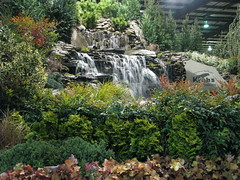
Organic horticulture employs the crucial principles of organic agriculture for the successful herbs, fruits, vegetables, flowers and ornamental plants growing. These principles concern the management of pests in the garden, soil composition and conservation, etc. General Notes Mulches, Double Digging, compost, Vermicompost, cover crops, mineral supplements and manures are the main constituents of the soil mixture in this kind of gardening in contrast to the commercial farming. Organic horticulture expects to minimize the risk of insects, fungi, and diseases development with the help of maintaining the high quality of the soil. Nonetheless, sometimes it is still necessary to use insecticidal soaps and sprays, pheromone traps, or other pest-control means, created especially for organic farmers. Experts define five fields of horticulture: - olericulture, which stands for the production and marketing of vegetables; - pomology that means the production and marketing of fruits; - floriculture, which is the production and marketing of floral crops; - landscape horticulture that includes the production, marketing, and maintenance of landscape plants; - and finally, post harvest physiology that studies and practices the preservation and maintaining of the quality of horticultural crops All these areas can utilize the key principles of organic gardening. Organic horticulture employs the
[more..]







